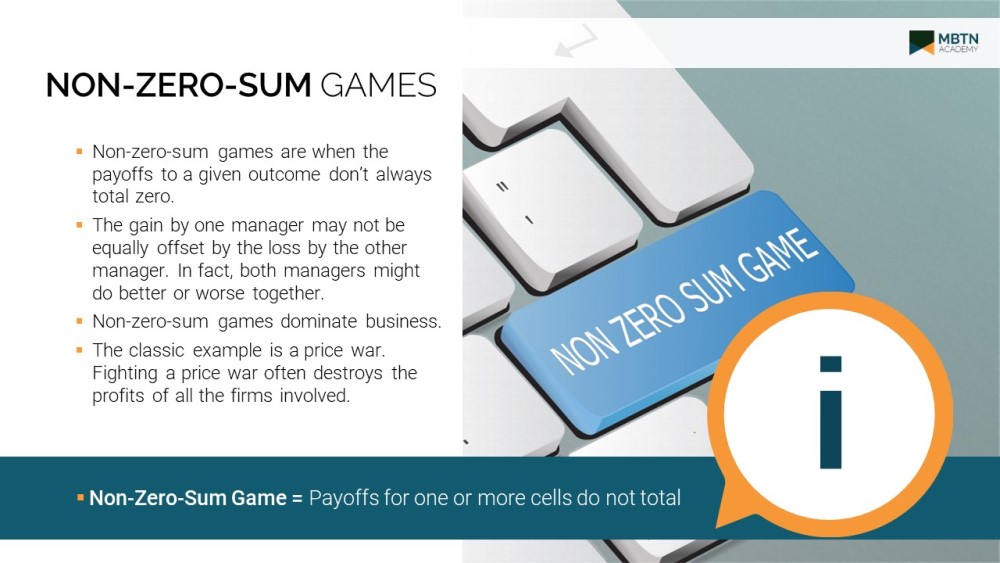01 Jul Game Theory – July’s Free MBTN Tutorial
Continuing with last month’s theme of improving decision-making under uncertainty, this month we’re covering how game theory can be used to improve strategy and competitive decision-making. Game theory is the study of strategic interactions where the outcomes for each participant depend on the actions of others. Rooted in economics and mathematics, it provides a framework for understanding competitive and cooperative behaviors in various contexts, from business negotiations to international relations. MBTN’s Game Theory tutorial is authored by Neil Bendle of the University of Georgia. Neil also has a blog on topics of interest to marketers and in particular, marketing professors. Check it out at neilbendle.com
Managers and business students often find themselves in situations where strategic decision-making is crucial. Whether it’s negotiating a business deal, competing in the marketplace, or managing teams, understanding game theory can offer valuable insights and tools for making better decisions.
Key Concepts in Game Theory
– Players: The decision-makers in a game. In a business context, players can be companies, individuals, or teams.
– Strategies: The choices available to players. A strategy is a complete plan of action for every possible situation in a game.
– Payoffs: The outcomes resulting from the combination of strategies chosen by the players. Payoffs can be profits, market shares, or any other measurable benefit.
– Games: The scenarios where players interact. Games can be cooperative or non-cooperative, symmetric or asymmetric, zero-sum or non-zero-sum.
MBTN’s Game Theory tutorial covers the following topics:
– Decision matrix basics – players, choices, and payoffs
– Explanation of zero and non-zero-sum games
– Definition and examples of dominant and weakly dominant conditions
– Game theory solutions under various conditions such as dual dominant, single dominant, and non-dominant conditions
To access the tutorial, simply click on the link below. And don’t forget, our modules also include problem sets to give you additional practice and feedback on these concepts. The link will be available throughout July 2024.
Monthly MBTN Module – Game Theory
If you find these tutorials valuable and you are faculty at a University or Community College, you might also be interested in our complete catalog of MBTN modules, available for use in academic settings. You can choose any combination of 3 or more modules to suit your needs.
Our complete catalog of MBTN modules
If you are an individual interested in learning more about Marketing Metrics and Concepts, please consider either of the following packages.
All Marketing Modules ($59.95)
MBTN All Modules and Certifications ($99.95)
Best regards,
Your Team at MBTN Academy
We hope you enjoy this month’s tutorial on pricing decisions under conditions of constant elasticity.
Best regards,
Your Team at MBTN Academy
Follow us on Twitter, Mastodon, and LinkedIn



No Comments